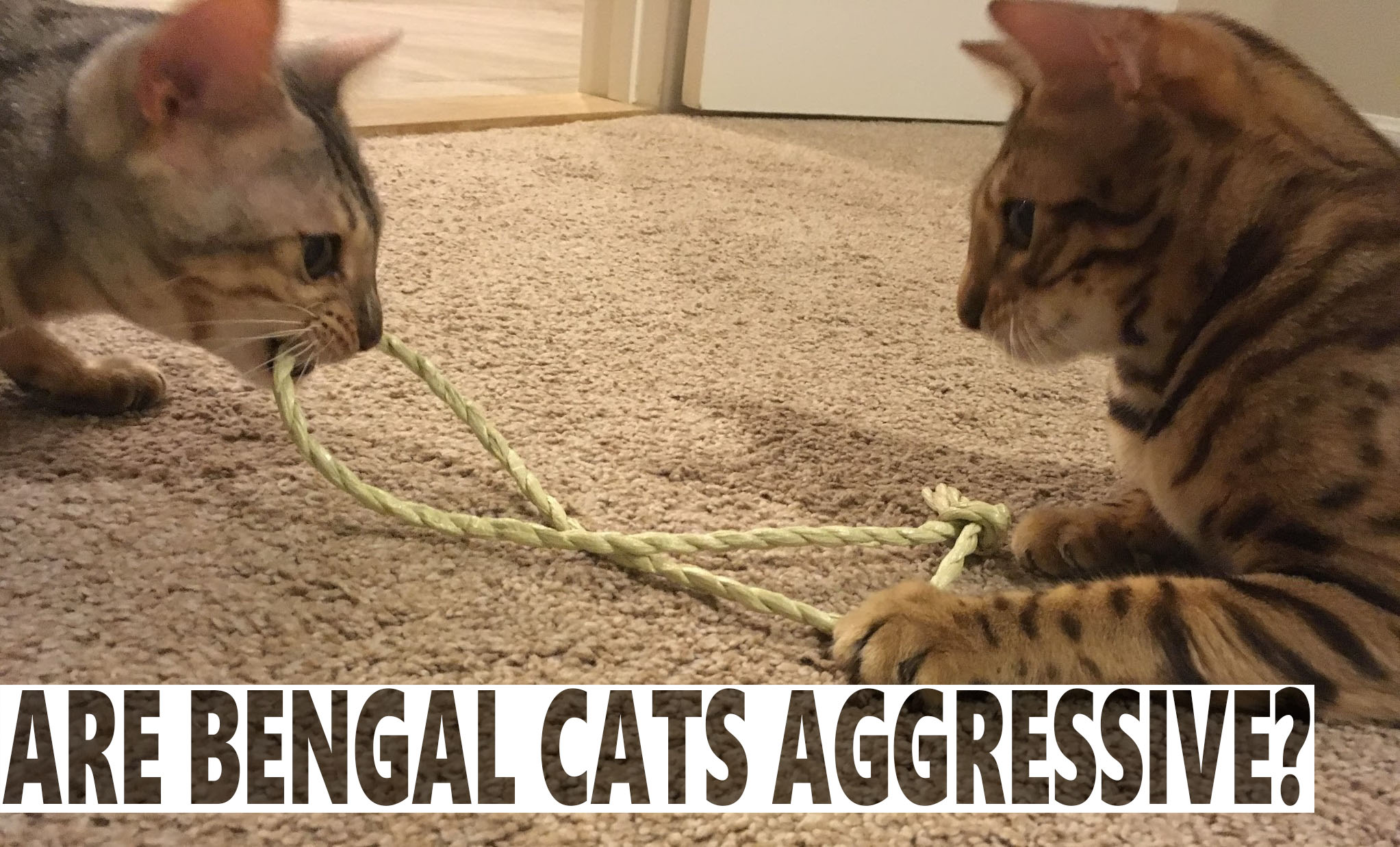Are Bengal Cats Aggressive?

Bengal cats, known for their striking appearance and energetic demeanor, often captivate potential pet owners. However, one of the most frequently asked questions about this unique breed is whether they are aggressive. Understanding the temperament and behavior of Bengal cats is crucial for anyone considering adding one to their family. This article will explore various aspects of Bengal cats, including their origins, temperament, and social behavior, ultimately addressing the question of aggression.
Quick Info Table: Bengal Cat Characteristics
| Feature | Description |
|---|---|
| Origin | Developed in the 1980s from hybrids of domestic cats and the Asian leopard cat |
| Size | Medium to large; typically 8-15 pounds |
| Coat | Short, dense, and soft with a distinctive spotted or marbled pattern |
| Temperament | Active, intelligent, playful, and curious |
| Lifespan | 12-16 years |
| Social Needs | Requires interaction and stimulation |
The Origins of Bengal Cats
Bengal cats trace their lineage back to the 1980s when breeders sought to create a domestic cat that resembled the wild Asian leopard cat. The goal was to combine the exotic look of a wild feline with the sociable nature of domestic cats. Early breeding programs involved crossing the leopard cat with domestic breeds such as the Egyptian Mau and the American Shorthair.
Today, Bengal cats are recognized for their unique coat patterns, which can be spotted or marbled. Their striking appearance is often compared to that of a wild cat, which can lead to misconceptions about their behavior. With their lively personalities and high intelligence, Bengals require a dedicated owner who can cater to their social and physical needs.
Understanding Bengal Cat Temperament
High Energy Levels
Bengal cats are known for their high energy levels. They are playful and require daily exercise to stay healthy and happy. Their playful nature can sometimes be mistaken for aggression, especially if they are not provided with adequate outlets for their energy. Engaging them in interactive play, such as using feather wands or laser pointers, can help fulfill their need for physical activity.
Intelligence and Curiosity
Another defining trait of Bengal cats is their intelligence. They are quick learners and can be trained to perform tricks or use a litter box. Their curiosity often leads them to explore their environment, which can sometimes result in mischievous behavior. Owners should provide mental stimulation through puzzle toys and interactive games to keep their minds engaged.
Social Behavior
Bengals are inherently social creatures. They thrive on interaction with their human companions and often form strong bonds with their families. Unlike some other breeds, Bengals do not typically exhibit solitary behavior. Instead, they may follow their owners around the house or engage in activities together. This sociable nature can help mitigate any potential aggressive tendencies, as they are more likely to seek companionship than confrontation.
Are Bengal Cats Aggressive?
Misconceptions About Aggression
The perception of aggression in Bengal cats may arise from their energetic and playful behavior. When Bengals are engaged in play, they can exhibit behaviors like pouncing, biting, or scratching, which are often misinterpreted as aggression. It is essential to understand that these behaviors are part of their natural play instincts, similar to how wild cats interact with each other.
Factors Influencing Aggression
While Bengal cats are not inherently aggressive, several factors can influence their behavior:
-
Lack of Socialization: Bengals that are not properly socialized during their early development stages may display aggressive tendencies. Early exposure to different people, pets, and environments is crucial in shaping a well-adjusted cat.
-
Stress and Environment: Changes in their environment, such as moving to a new home or the introduction of new pets, can stress Bengal cats. This stress may lead to defensive behavior, which can be perceived as aggression.
-
Medical Issues: Any sudden change in behavior should prompt a visit to the veterinarian. Health problems can sometimes manifest as aggression, so it is essential to rule out any underlying medical conditions.
Positive Reinforcement and Training
Bengal cats respond well to positive reinforcement training. By rewarding desired behaviors with treats or affection, owners can encourage their cats to behave appropriately. Establishing boundaries and using consistent training methods can reduce the likelihood of aggressive behavior.
Managing Aggression in Bengal Cats
Providing Adequate Stimulation
To prevent any potential aggression, it is vital to provide Bengals with plenty of stimulation. This includes:
- Interactive Toys: Toys that mimic hunting behavior, such as feather wands or laser pointers, can help channel their energy positively.
- Climbing Structures: Bengals love to climb and explore. Providing vertical space, such as cat trees or shelves, can satisfy their curiosity and need for exercise.
- Scheduled Playtime: Regular play sessions with their owners can help strengthen the bond between the cat and its human, reducing any feelings of insecurity.
Socialization Techniques
Proper socialization is crucial in preventing aggression. Here are some effective techniques:
- Early Exposure: Introduce Bengal kittens to various people, pets, and environments when they are young. This exposure helps them develop confidence and reduces the likelihood of fearful or aggressive behavior.
- Controlled Interactions: For adult Bengals that may be more wary, controlled introductions to new experiences can help them adjust without feeling overwhelmed.
Conclusion
In conclusion, Bengal cats are not inherently aggressive. Their energetic and playful nature can sometimes be misconstrued as aggression, but with proper training, socialization, and care, they can thrive as loving companions. Understanding their needs and behaviors is essential for any potential owner. By providing stimulation, interaction, and a loving environment, you can ensure that your Bengal cat remains a joyful and affectionate member of your household.
Ultimately, Bengal cats are a rewarding breed that brings life and energy to any home. If you're considering welcoming one into your family, remember to embrace their playful spirit and provide the attention they deserve. As with any pet, patience and understanding are key to fostering a harmonious relationship.



Comments ()